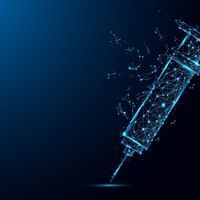disease model

Organoids: The New Frontier
The Scientist | Nov 22, 2023 | 1 min read
Explore the latest in organoid production for studying development, disease, and drug screening.

New Strategies to Discover Human Disease Genes
The Scientist | Oct 16, 2023 | 2 min read
Learn how researchers across health-related fields identify and characterize disease-causing genomic variants.

Designing Transgenic Rodent Models: Key Considerations
Taconic | Sep 19, 2023 | 1 min read
Learn about the advantages and disadvantages of random integration and targeted approaches for creating transgenic models.

Modeling Human Disease and Development with Organoids
The Scientist | Aug 25, 2023 | 1 min read
Discover how scientists use cardiac and skin organoids to study differentiation and toxicity.

Leveraging Stem Cells to Create Better Disease Models
The Scientist | May 29, 2023 | 2 min read
Clive Svendsen, Meritxell Huch, Ameen Salahudeen, and Maksim Plikus will discuss the latest advances in using patient-derived stem cells to create more accurate disease models.

Optimizing Organoid Models for Basic Research and Translational Applications
Sartorius | Apr 14, 2023 | 1 min read
By tracking 3D cultures in real time, researchers obtain reproducible results quickly and efficiently.

Major Advances in Mini Brain Bioengineering
The Scientist | Mar 31, 2023 | 1 min read
Explore the latest developments in brain organoid production.

Male and Female Stem Cells Derived from One Donor in Scientific First
Dan Robitzski | Dec 22, 2022 | 3 min read
Studying otherwise identical XY, XX, X0, and XXY pluripotent stem cells will allow researchers to investigate sex-based differences in greater depth.

Generating Mini-Guts for Drug Screening
The Scientist and MilliporeSigma | Dec 16, 2022 | 4 min read
Human gut organoids facilitate precise disease modeling and power high-throughput drug development efforts.

Climate Change, Deforestation Drive Bat Virus Spillover Into Humans
Amanda Heidt | Nov 17, 2022 | 4 min read
Bats that experience food shortages due to climate change and habitat loss end up roosting in urban settings, where they shed more of the deadly Hendra virus.

Colin Carlson Works to Predict and Prevent Viral Spillover
Catherine Offord | Jul 18, 2022 | 3 min read
The Georgetown University biologist studies how climate change contributes to the emergence of new zoonotic threats.

Technique Talk: Induced Pluripotent Stem Cells: Reprogramming and Applications
The Scientist | Apr 27, 2022 | 1 min read
Ritu Kumar will discuss how derivation of induced pluripotent stem cells from somatic cells has revolutionized regenerative medicine.

Building Better Organoids
Bio-Techne | Aug 17, 2021 | 1 min read
Explore tissue-specific protocols for growing organoids from primary tissue or stem cells.

Technique Talk: Redefining Mouse Transgenesis with CRISPR-Cas Technology
The Scientist | Aug 9, 2021 | 1 min read
Learn how CRISPR-Cas technology has revolutionized the creation of transgenic mouse models.

Monitoring Organoid Growth in Real Time
Sartorius | Jul 30, 2021 | 1 min read
Automated live-cell analysis simplifies organoid research.

Exploring Single Cell Analysis of Organoid Models: An Expert Panel Discussion
The Scientist Creative Services Team in collaboration with 10x Genomics | May 20, 2021 | 1 min read
Experts in single cell techniques will discuss their use in organoid models and answer audience questions.

Infographic: The Value of Scaling: PSC Suspension Cultures
Thermo Fisher Scientific | Mar 17, 2021 | 1 min read
As research and therapeutic applications for pluripotent stem cells (PSCs) grow, so does the need to reliably and cost-effectively generate large numbers of high-quality cells.

Vaccine Exemptions May Allow for Large Measles Outbreaks
Abby Olena, PhD | Aug 21, 2019 | 4 min read
Mathematical models reveal that current vaccination rates in Texas schools could pave the way for the virus to spread to hundreds of people.

First Genetic Screen of Pigs Using ENU
Ashley Yeager | Jul 14, 2017 | 3 min read
Using the mutagenic chemical N-ethyl-N-nitrosourea, researchers confirm the role of a gene in a piglet deformity and identify potential models for human diseases.
